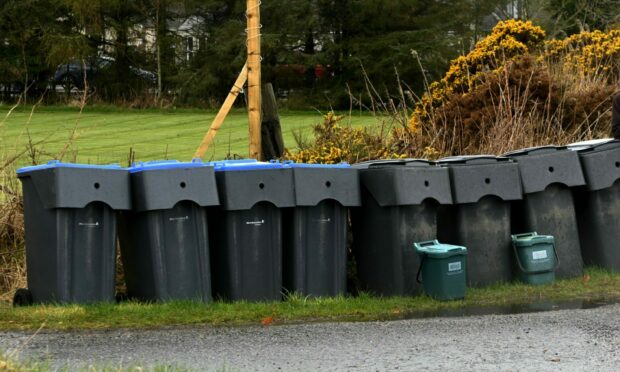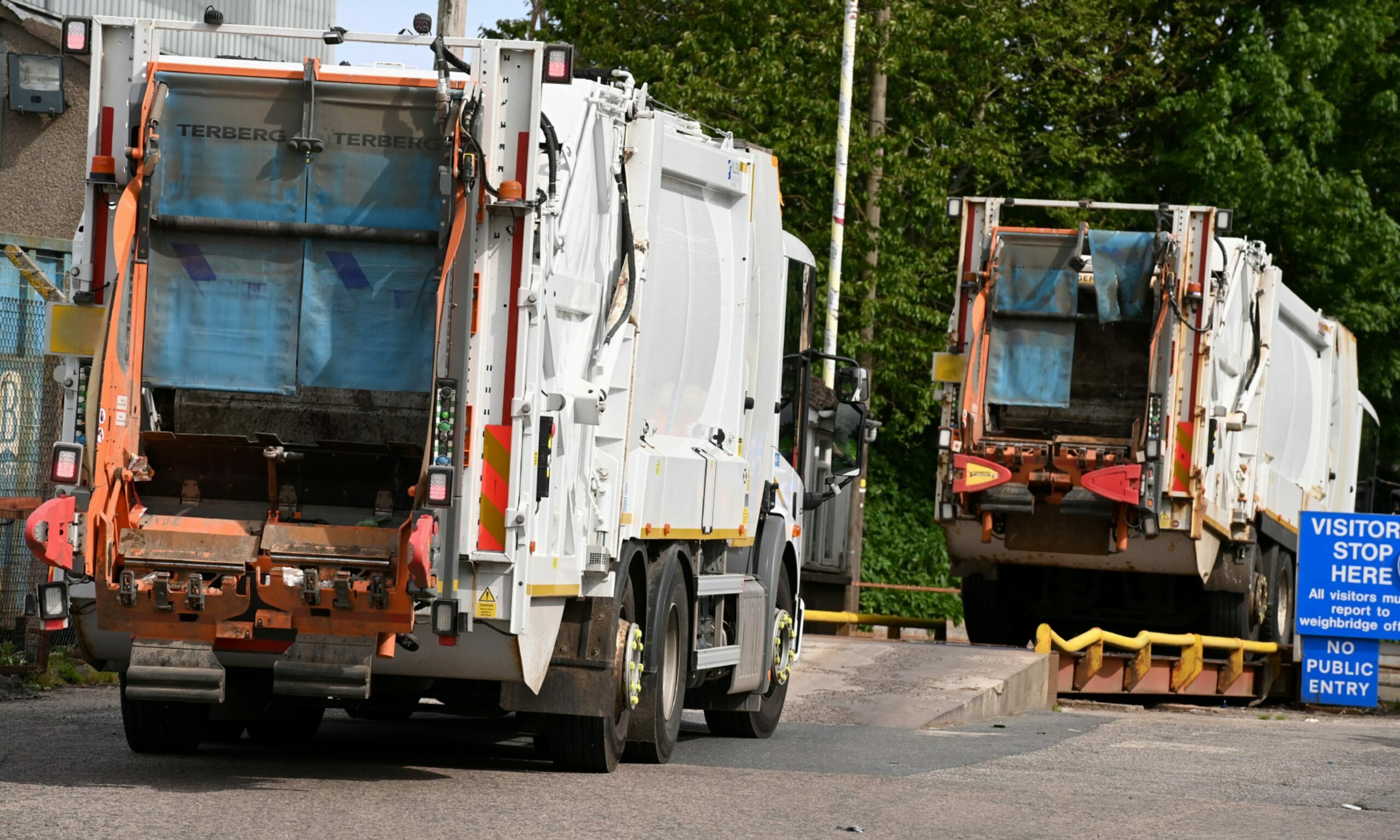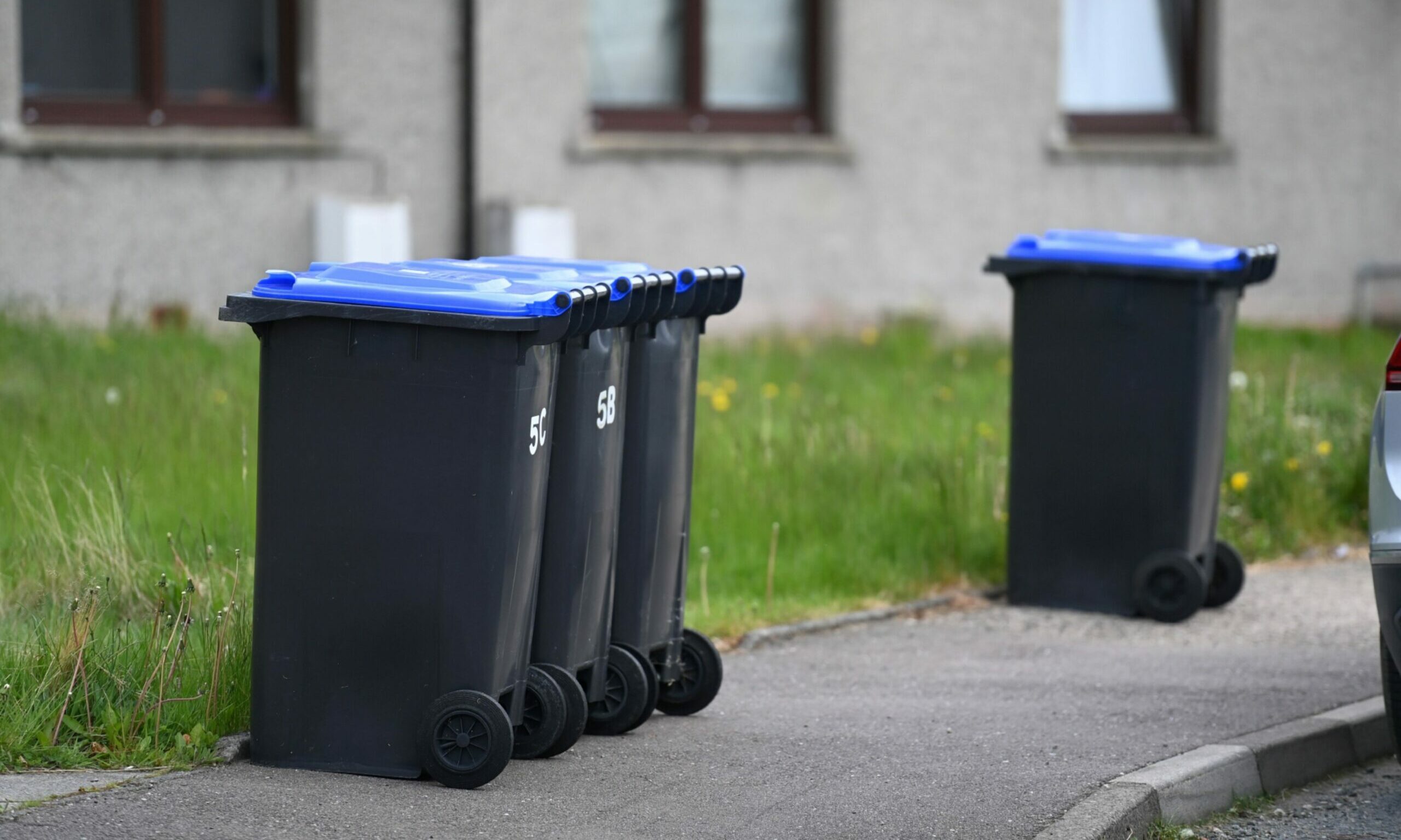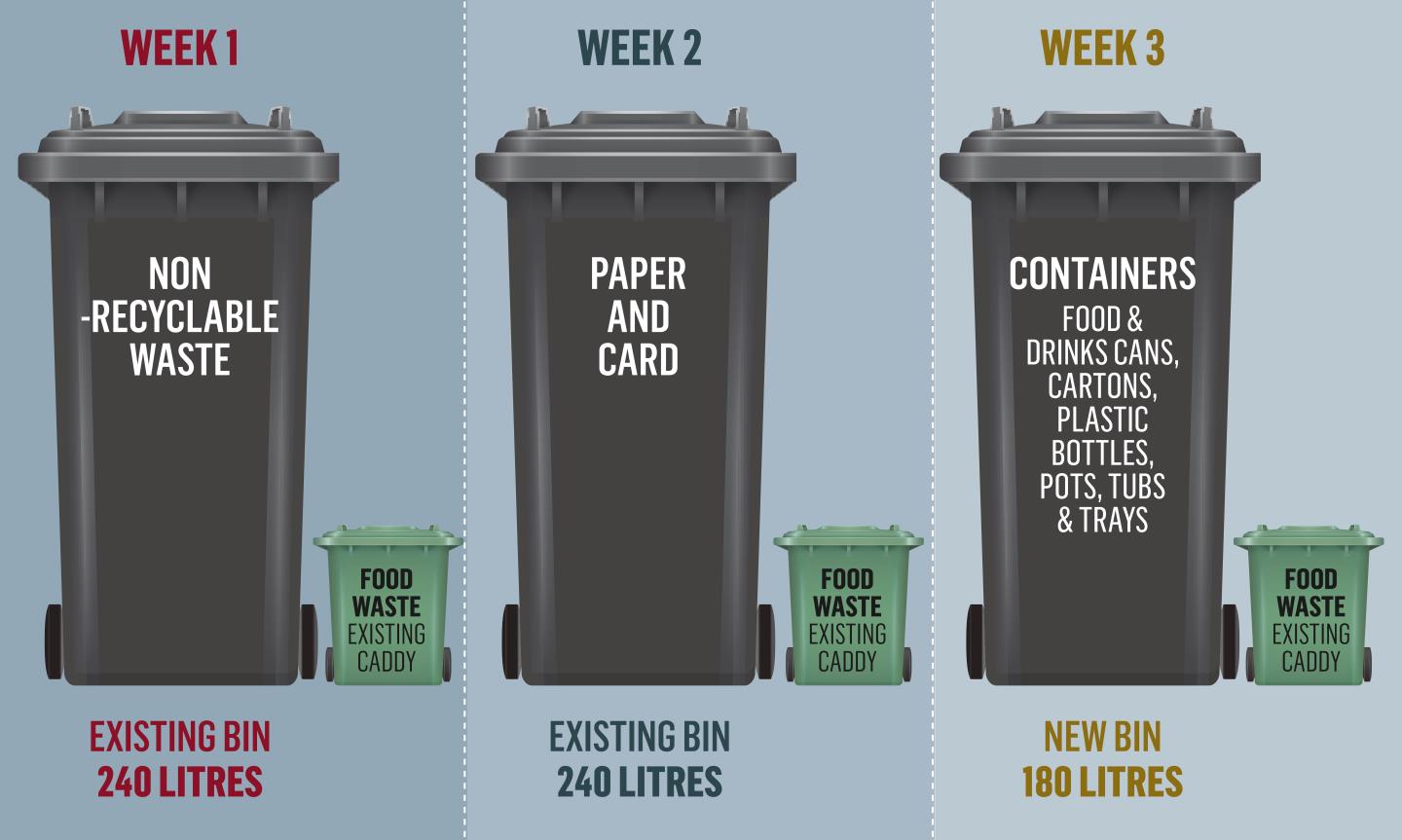Cruden Bay residents will soon be getting a third bin in a pilot of the controversial change to a three-bin, three-week cycle system for Aberdeenshire households.
Earlier this year, the local authority approved a £4 million overhaul to how its household waste and recycling collection service will work.
Instead of the current two-bin, two-week cycle system, households will instead have a three-week cycle, and every home will have three bins.
The plans have attracted a great deal of controversy, with critics arguing it will cause delays, non-collections and confusion.
But the council believes the big change will significantly reduce the volume of recyclable rubbish going to landfill, and improve the quality of recycling being collected in Aberdeenshire.
What’s happening in Cruden Bay?
Cruden Bay has been on a three-weekly kerbside collection cycle since September 2019.
Starting next month, households in Cruden Bay will get a third, orange-lidded bin as part of a pilot scheme for the overhaul across Aberdeenshire.
The council is in the process of getting in touch with almost 1,000 households to inform them about the pilot.
A statement from Aberdeenshire council said: “We can confirm that Cruden Bay will play a vital role in a pilot scheme as part of the introduction of our new three-weekly household recycling and waste collection strategy.”
It continued: “Cruden Bay has been on a three-weekly kerbside collection pilot using their existing bins since September 2019, and lends itself to playing an instrumental role in the latest kerbside collection roll-out.
“Around 920 households are being contacted by letter with full details of the new arrangements, which will include delivery of an additional orange-lidded recycling bin for mixed containers.”
Community waste officers for the council will host a drop-in session at Port Erroll Hall in Cruden Bay tomorrow, September 22, from noon to 7pm to answer questions from residents.
For Cruden Bay residents only, here is how the system will work:
- Week 1 (Tuesday, October 4): Paper, card and unbagged shredded paper recycling plus food waste (using existing, blue-lidded recycling bin plus food waste caddy)
- Week 2 (Tuesday, October 11): Containers recycling plus food waste (new orange-lidded bin for food & drinks cans, cartons, plastic bottles, pots, tubs & trays, all using a new bin, plus food waste caddy)
- Week 3 (October 18): Non-recyclable waste, sometimes referred to as your landfill bin, plus food waste (using existing grey/black-lidded bin and food waste caddy)
How will the new system work once it’s enforced across Aberdeenshire, and when will it start for everyone else?
Right now, most Aberdeenshire residents have two bins, a black one for non-recyclables, and one with a blue lid for recyclables, and each bin is collected every second week (with a weekly food waste caddy pickup as standard).
But once the new system is in place, every home will have a third, additional bin.
Here is how the three-week system will work in practice once it has been fully rolled out across Aberdeenshire:
- Week 1: Non-recyclable waste, sometimes referred to as your landfill bin, plus food waste. The scheme will use existing black/grey bin and food waste caddy.
- Week 2: Paper and card plus food waste. The scheme will use existing, blue-lidded recycling bin plus food waste caddy.
- Week 3: New collection of containers plus food waste. This will be food and drink cans, cartons, plastic bottles, pots, tubs and trays, all using a new bin, plus food waste caddy.
The changes are due to start being implemented in certain regions of Aberdeenshire from spring next year.
After this, they will then be rolled out across other regions throughout the remainder of 2023.
What’s the point of all this?
Aberdeenshire Council says it is making the change in order to reduce its carbon footprint, as part of efforts for Scotland to reach net zero greenhouse gas emissions by 2045.
By reducing the frequency in which residents can send their rubbish to landfill, and increasing recycling availability, it is hoped recycling rates will go up.
The council said the new three-week scheme is “expected to divert up to 6,000 tonnes of material into recycling”, and save the council around £700,000 a year.





Conversation